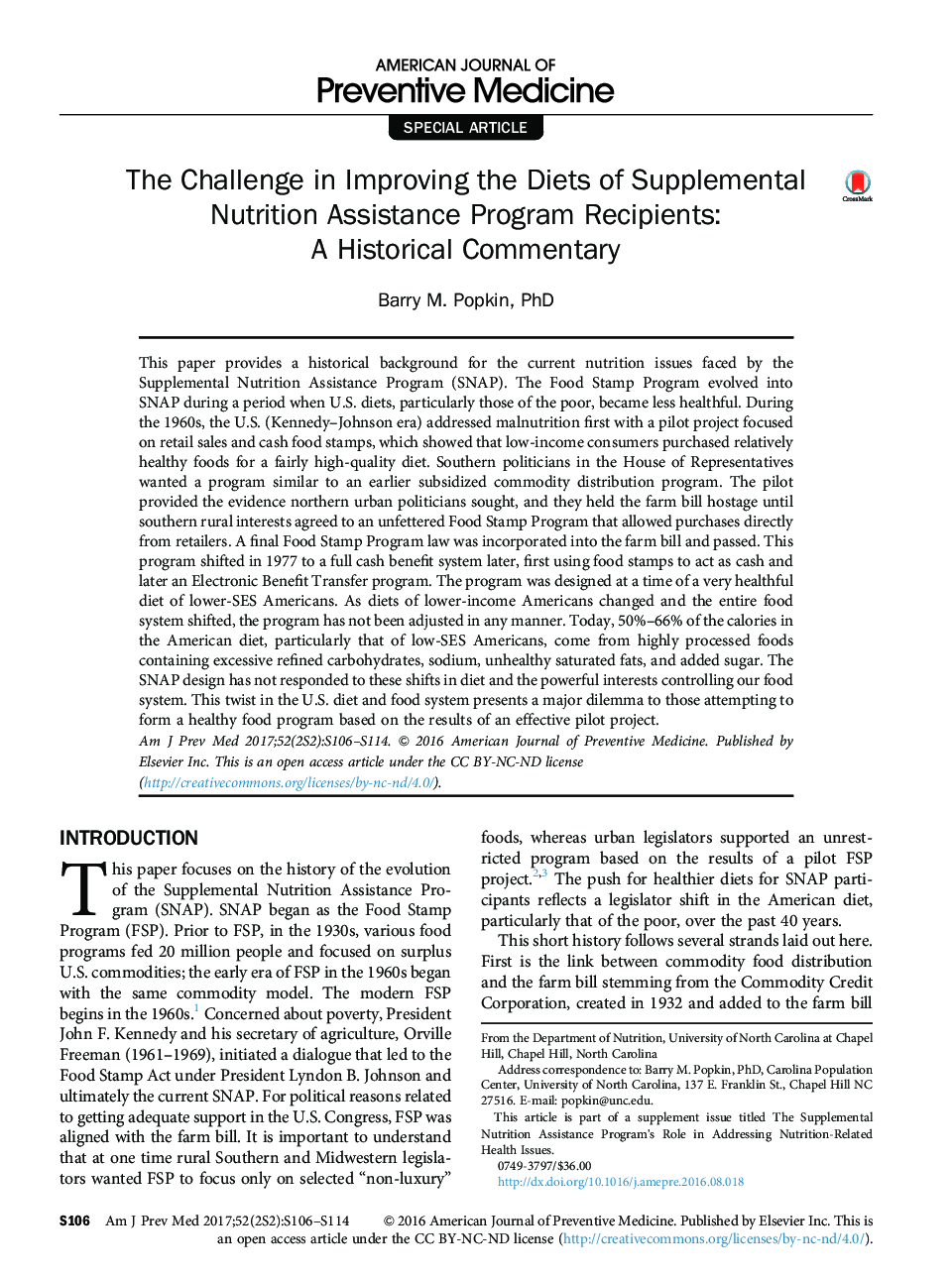| کد مقاله | کد نشریه | سال انتشار | مقاله انگلیسی | نسخه تمام متن |
|---|---|---|---|---|
| 8817080 | 1608610 | 2017 | 9 صفحه PDF | دانلود رایگان |
عنوان انگلیسی مقاله ISI
The Challenge in Improving the Diets of Supplemental Nutrition Assistance Program Recipients: A Historical Commentary
ترجمه فارسی عنوان
چالش در بهبود رژیم غذا گیرندگان برنامه دریافت کمک مکمل مکمل: تفسیر تاریخی
دانلود مقاله + سفارش ترجمه
دانلود مقاله ISI انگلیسی
رایگان برای ایرانیان
موضوعات مرتبط
علوم پزشکی و سلامت
پزشکی و دندانپزشکی
سیاست های بهداشت و سلامت عمومی
چکیده انگلیسی
This paper provides a historical background for the current nutrition issues faced by the Supplemental Nutrition Assistance Program (SNAP). The Food Stamp Program evolved into SNAP during a period when U.S. diets, particularly those of the poor, became less healthful. During the 1960s, the U.S. (Kennedy-Johnson era) addressed malnutrition first with a pilot project focused on retail sales and cash food stamps, which showed that low-income consumers purchased relatively healthy foods for a fairly high-quality diet. Southern politicians in the House of Representatives wanted a program similar to an earlier subsidized commodity distribution program. The pilot provided the evidence northern urban politicians sought, and they held the farm bill hostage until southern rural interests agreed to an unfettered Food Stamp Program that allowed purchases directly from retailers. A final Food Stamp Program law was incorporated into the farm bill and passed. This program shifted in 1977 to a full cash benefit system later, first using food stamps to act as cash and later an Electronic Benefit Transfer program. The program was designed at a time of a very healthful diet of lower-SES Americans. As diets of lower-income Americans changed and the entire food system shifted, the program has not been adjusted in any manner. Today, 50%-66% of the calories in the American diet, particularly that of low-SES Americans, come from highly processed foods containing excessive refined carbohydrates, sodium, unhealthy saturated fats, and added sugar. The SNAP design has not responded to these shifts in diet and the powerful interests controlling our food system. This twist in the U.S. diet and food system presents a major dilemma to those attempting to form a healthy food program based on the results of an effective pilot project.
ناشر
Database: Elsevier - ScienceDirect (ساینس دایرکت)
Journal: American Journal of Preventive Medicine - Volume 52, Issue 2, Supplement 2, February 2017, Pages S106-S114
Journal: American Journal of Preventive Medicine - Volume 52, Issue 2, Supplement 2, February 2017, Pages S106-S114
نویسندگان
Barry M. PhD,
